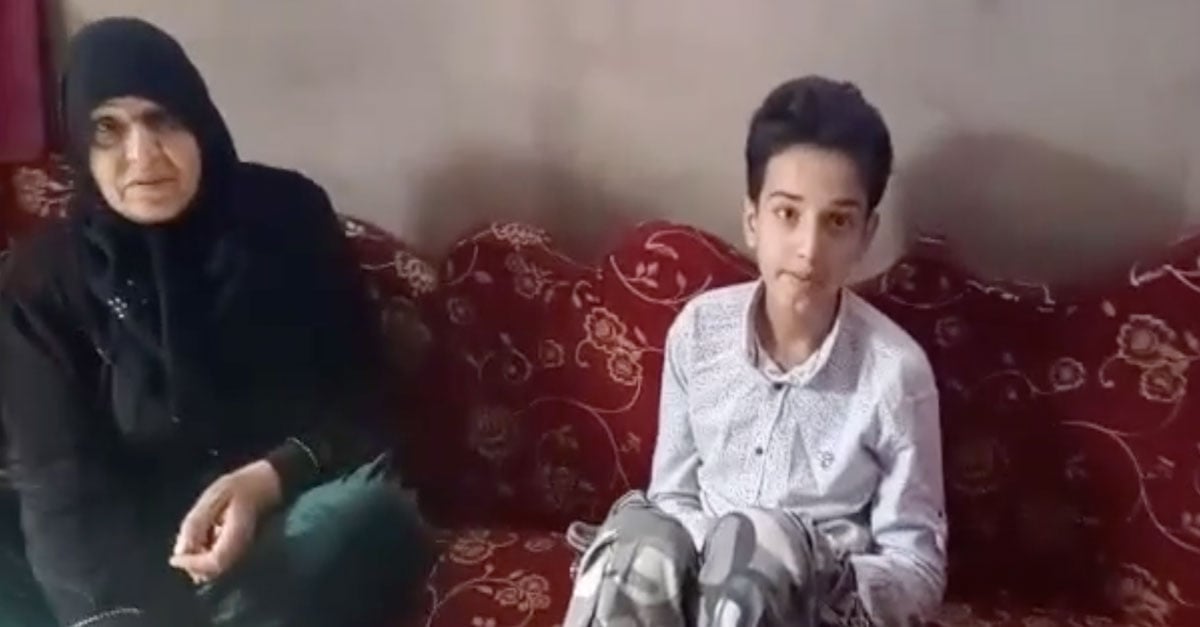This is the case for PWBDs fleeing the Syrian civil war: when housing, food and water are in short supply, getting factor might seem impossible. Fortunately, the WFH aims to support the global bleeding disorders community in even the most challenging situations through programs like the WFH Humanitarian Aid Program. This includes providing donated factor to people in Syrian refugee camps in Lebanon. Here is the first of two stories about boys with hemophilia who are benefitting from donated factor provided by the WFH Humanitarian Aid Program in a refugee camp.
Karam’s story
Karam is a 14-year-old Syrian orphan with severe hemophilia B. Because of sporadic access to factor in his refugee camp, he has developed multiple bruises around his knee. His situation is a reminder of how important it is for people with hemophilia to have access to treatment and care, because even seemingly minor injuries like his can contribute to permanent motion reduction in a joint.
“Thank you for helping this orphan child. He has no one other than you to depend on for his treatment.”
—Karam’s grandmother
For a person like Karam living in a refugee camp, the WFH Humanitarian Aid Program donations are the only source of treatment. Unfortunately, the boy’s situation is all-too common. There are refugees all over the world like him, and the WFH Humanitarian Aid Program team works to provide them with as much support as possible.
Getting and managing donations to refugee camps is a major challenge. An ever-changing logistics and compliance environment must be carefully managed. Also, despite the Program team’s efforts in training refugees on storage, handling and traceability of factor to ensure usage is optimized, it’s challenging to ensure effective use. Of course, the team works to be as flexible as it can be. In a situation where demand for donated factor will always outweigh supply, the immediate goal is always to try and save lives first.
Check back in a few weeks to read about another refugee story: the experience of Khoder, a 10-year-old with hemophilia.
Over 4.5 million IUs of factor have been donated to Lebanon through the WFH Humanitarian Aid Program so far in 2023. Since 2015, over 16 million IUs of factor have been donated to Lebanon. To find out more about the WFH Humanitarian Program, please click here.
About the WFH Humanitarian Aid Program
The WFH Humanitarian Aid Program improves the lack of access to care and treatment by providing much-needed support for people with inherited bleeding disorders in developing countries. By providing patients with a more predictable and sustainable flow of humanitarian aid donations, the WFH Humanitarian Aid Program makes it possible for patients to receive consistent and reliable access to treatment and care. None of this would be possible without the generous support of Sanofi and Sobi, our Founding Visionary Contributors; Bayer, CSL Behring and Roche, our Visionary Contributors; Grifols, our Leadership Contributor; and Takeda and Japan Blood Products Organization, our Contributors. To learn more about the WFH Humanitarian Aid Program, visit www.treatmentforall.org.













